Converter DC-DC 3A 4.75-23V to 1.0-17V
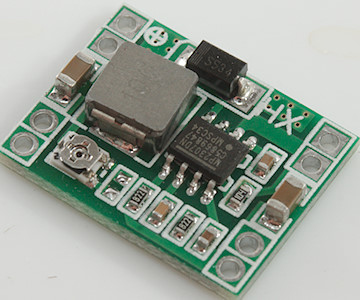
Official specifications:
- Model Name: MP1484EN
- Module nature: non-isolated buck
- Rectification: synchronous rectification
- Input voltage: 4.75V-23V
- Output voltage: 1.0V-17V
- Output current: peak 3A, long time 1.8A
- Conversion efficiency: 96% (highest)
- Switching frequency: 340KHz
- Output ripple: 30mV (no load)
- Load regulation: ± 0.5%
- Voltage regulation: ± 2.5%
- Operating temperature: -40 ? to +85 ?
- External dimensions: 22.3 * 17.5 * 4 (L * W * H) (mm)
I got it from Ebay dealer: yang-sell584
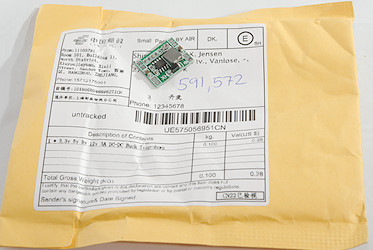
One module in a rather large envelope.
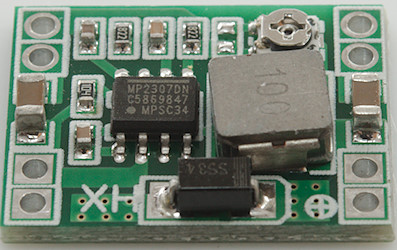
Measurements
This chapter only contains a few of the measurement, click here to see all
- It is difficult to adjust voltage precisely, i.e. within 0.1V
- Minimum output voltage is 0.5V, but output is unstable below about 2V
- Maximum output voltage is 19.5V with 23V in.
- Module size: 22.2 x 17.3 x 4.5mm
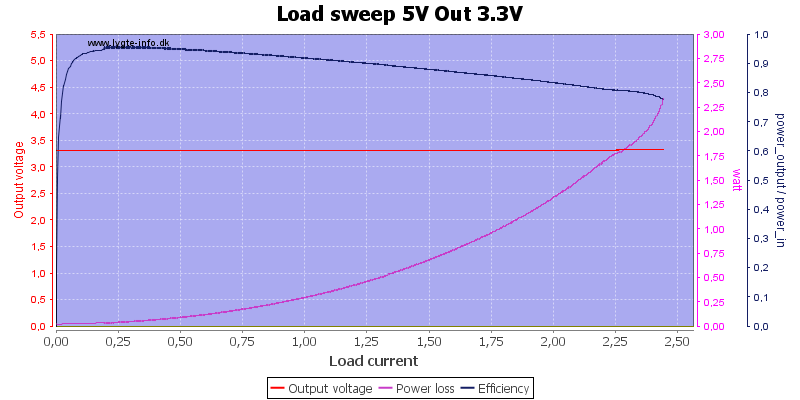
With 5V input and about 3.3V output the module could deliver 2.4A, output voltage is stable with varying loads.
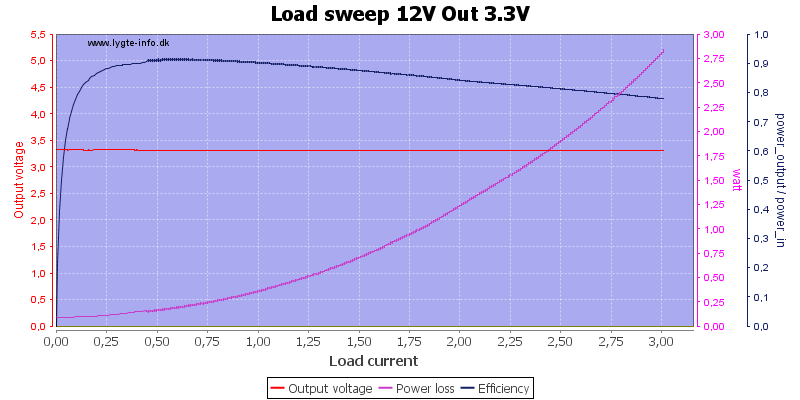
Increasing the input voltage to 12V made it possible to reach 3A, but the power loss in the converter is rather high.
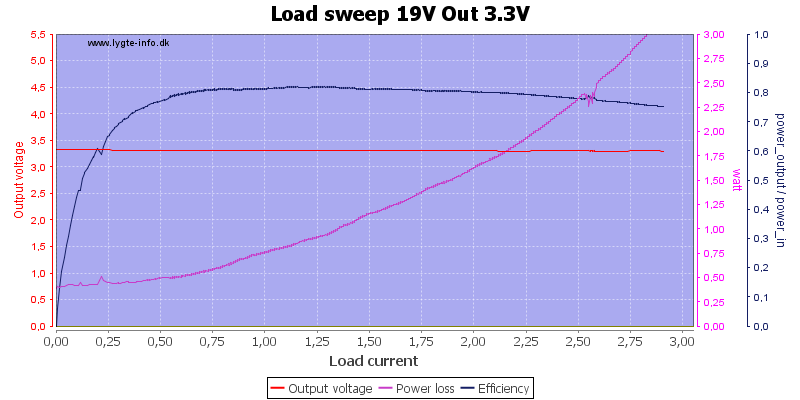
Increasing the input voltage more will reduce the efficiency, i.e. more heat in the converter.
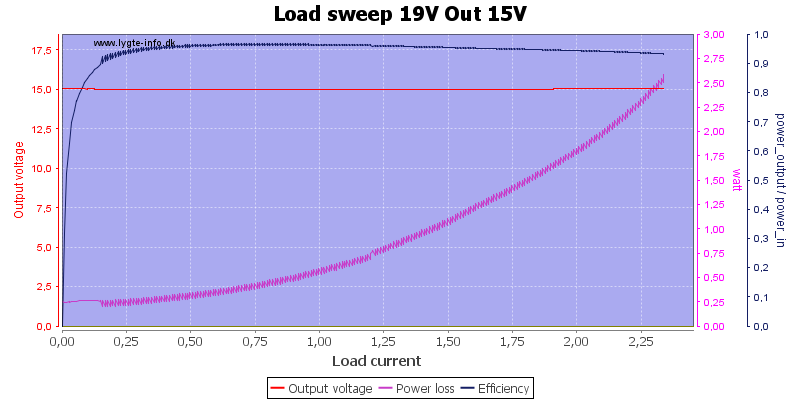
Here I am running with 15V out and 19V input.
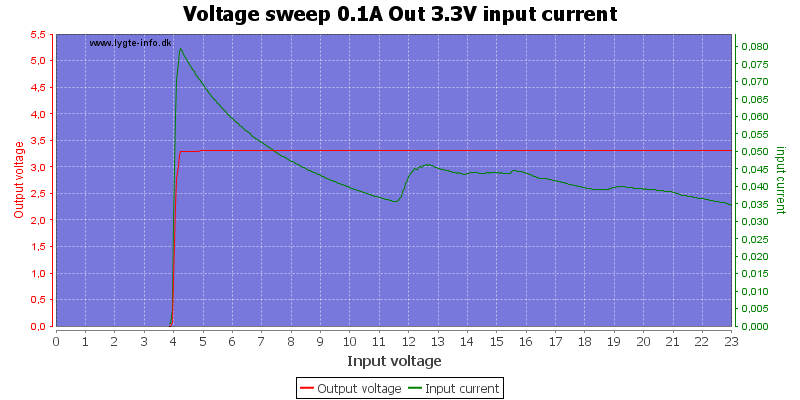
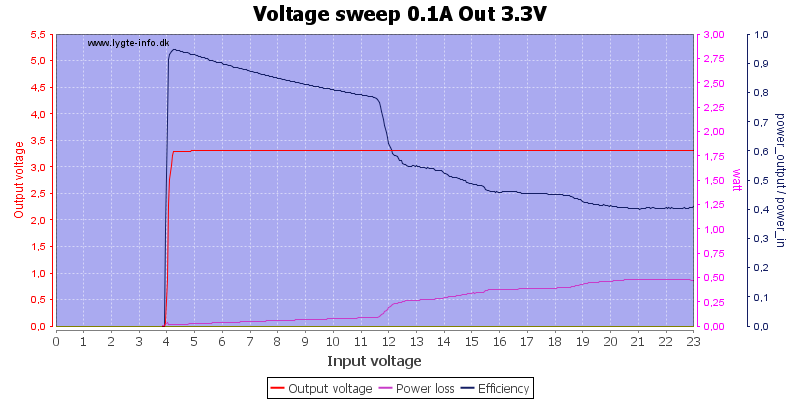
Running with fairly load output current, it looks like the converter changes mode around 12V. It needs about 1.3V between input and output to regulate.
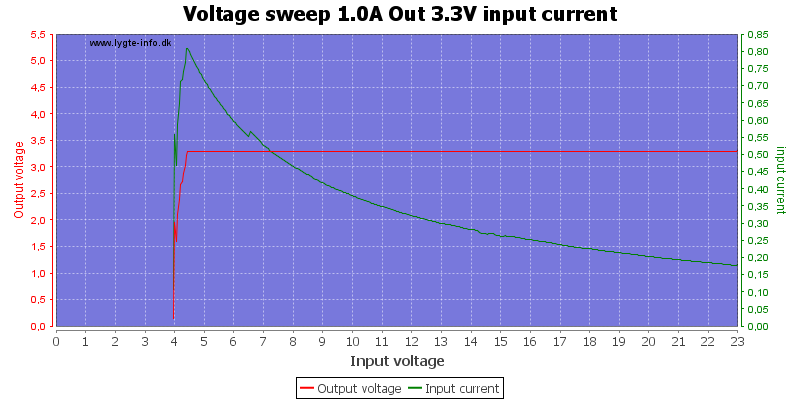
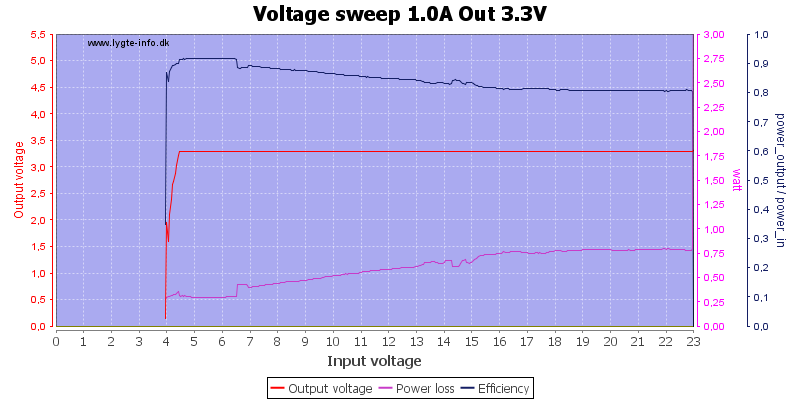
At higher current there is no mode change and the converter needs about 1.5V to regulate.
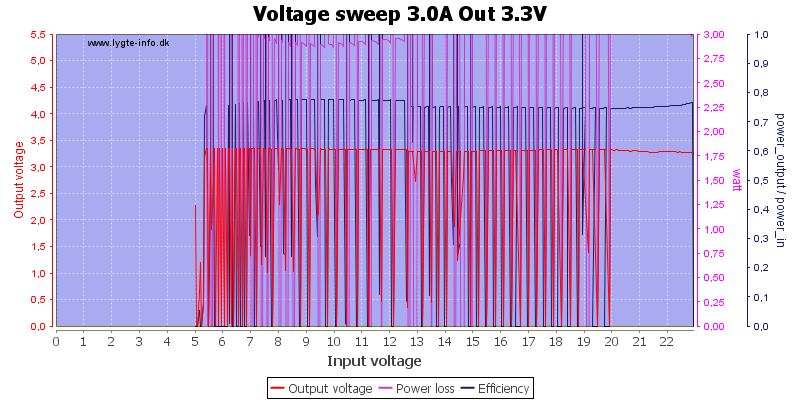
The converter do not like 3A output current, it may be because the converter overheats and shuts down for a short cooling period. This is present at all output voltages.
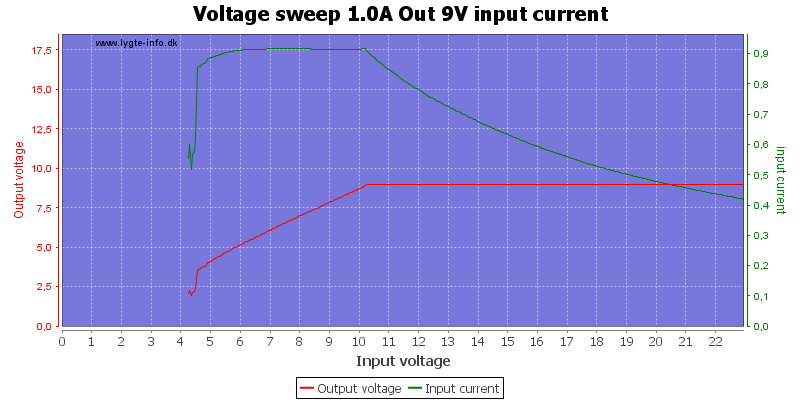
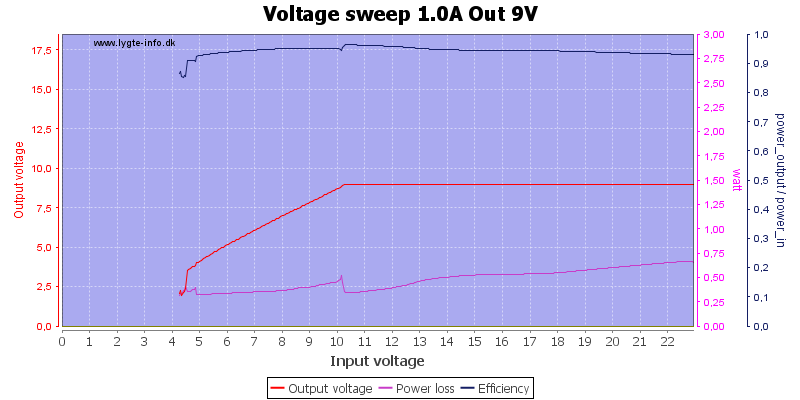
There is not any surprise with 9V output.
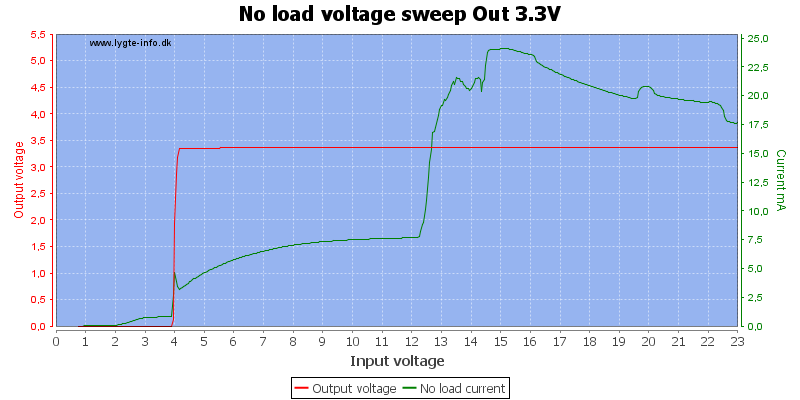
Unloaded the converter can use up to 25mA, it is very depend on input voltage.

With a low voltage drop, the noise is fairly low.

But high input voltage and low output voltage will give a lot of noise.

At power on the output voltage needs a few seconds to raise, and with a slowly raising input voltage there may be some noise.

The supply is not ideal to supply 3.3V logic directly, when load increases the voltage will drop

And when load is removed the voltage will increase shortly (A capacitor may be able to smooth this).
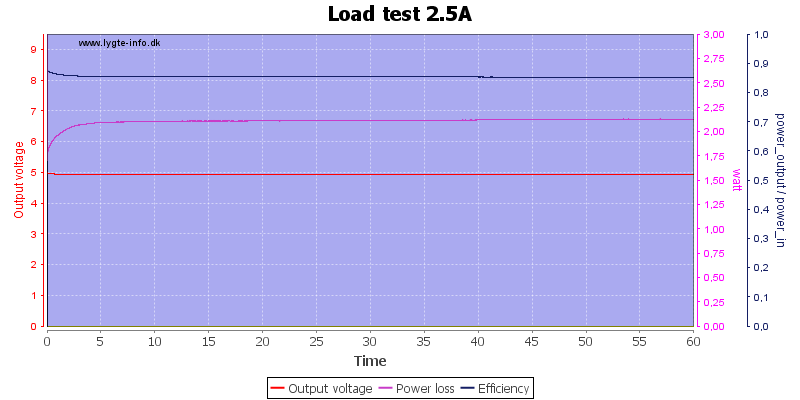
Load test at 2.5A with 5V out and 12V in. The efficiency goes down when the converter gets hot.
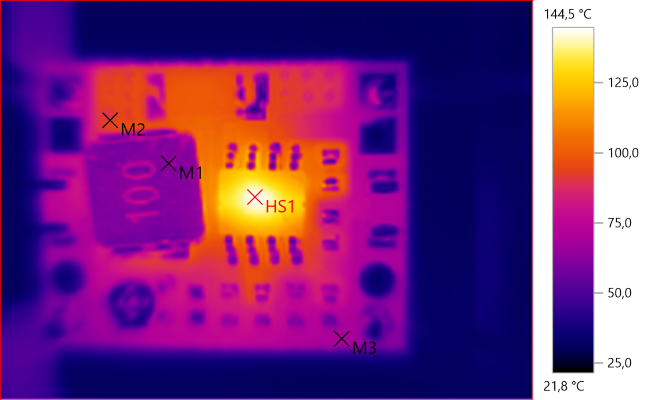
M1: 62.3°C, M2: 92.2°C, M3: 69.2°C, HS1: 144.5°C
This load test was obvious too much for the converter, the temperature of the chip is way to high (It did survive). The inductor is hotter than the IR camera shows on it, as the temperature of the circuit board shows.
Closer look
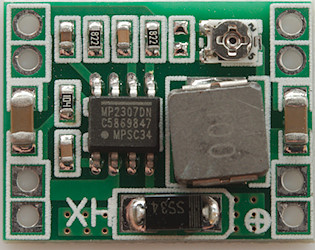
The used chip is a MP2307, it looks to be slight better than the MP1484 specified.

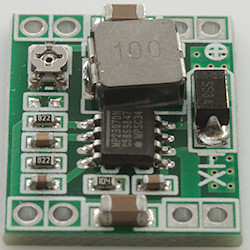
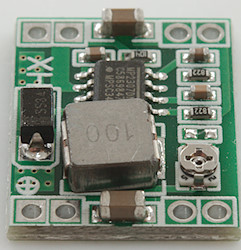
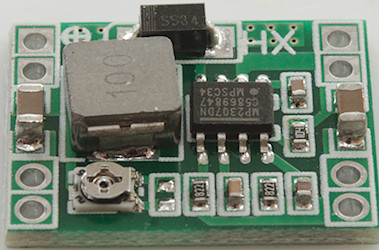
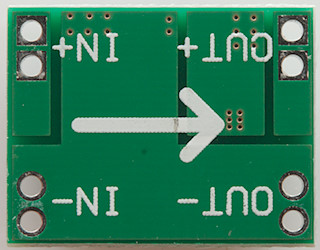
Nice labeling on this side.
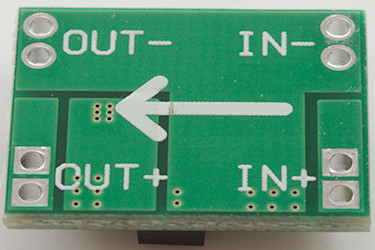
Conclusion
This is a compact fairly powerful buck converter with adjustable output. The adjustable output is a nice detail when adapting the converter for different tasks, but it also means low precision in setting the output voltage, you have to be really careful to hit within 0.1V, within 0.5V is more realistic. For lower noise some external capacitors would be a good idea.
Notes
The converter was supplied by a reader for review.




























